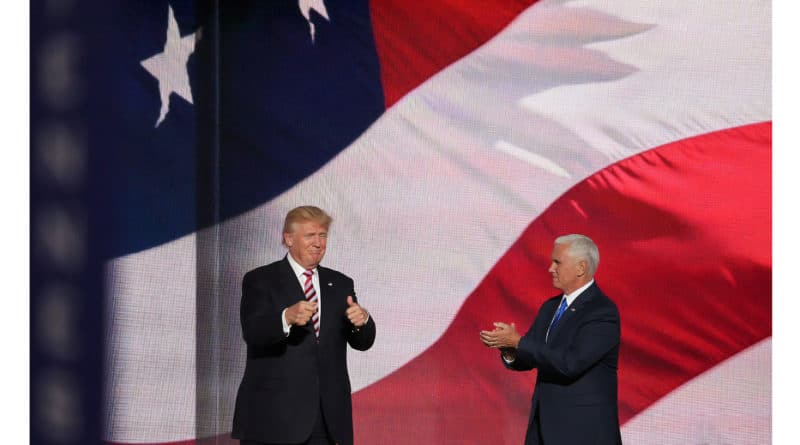Trumps Budget Would Boost Career and Technical Education Funding
President Donald Trump recently announced a $900 million increase in education spending that would go towards career and technical education training. Trump is using this spending to offer stronger career paths for students interested in alternatives to four-year degrees.
Education Secretary Betsy DeVos offered a comment to the press after the administration released its new budget proposal.
“It’s maybe the largest investment in CTE ever.”
The budget request reduces the federal role in education and puts decision making into the hands of state and local leaders, teachers, parents and students, according to a press release by the Department of Education.
Kim Green of Advance CTE, a national non-profit that represents state CTE directors and state leaders in secondary, post-secondary and adult CTE, spoke positively of the administrations new budget proposal.
“Advance CTE and its members are grateful for this significantly increased investment to support high-quality Career and Technical Education (CTE),” said Green in a press release by the Department of Education. “Advance CTE partners with many federal programs to ensure the success of each learner, and we believe that the budget must ensure robust support for the entire continuum of education and workforce programs.
“This additional funding will go a long way in helping to ensure that every learner in America—no matter their age, zip code or background—has access to high-quality CTE that leads to a fulfilling career and ensures a family-sustaining wage.”
The four main points of Trumps budget request include expanding education freedom for students, empowering states to best meet the needs of students, increasing career and technical education opportunities for students and transforming federal student aid to better serve students.
Expanding education freedom for students
Education Freedom Scholarships, or EFS, would provide $5 billion in additional funding to help for than one million students in the United States. States would be responsible for designing programs that will best serve their students. This program is funded by private, voluntary donations.
Empowering states to best meet the needs of students
The elementary and secondary education for the disadvantages, or ESED, block grant consolidates most K-12 formula and competitive grant programs administered by the department into one $19.4 billion formula grant program. The program builds on ESED by giving more control to the state governments.
Increasing career and technical education opportunities for students
CTE programs receive an increase of $900 million in the 2021 budget request. This meets the administrations goal of offering technical education programs to high school students who would rather travel a trade-school path than the tradition four-year degree.
Transforming federal student aid to better serve students
Federal student aid, or FSA, will be formed into a separate organization if this budget is passed. It allows for new governance that will lead to improved management, oversight and administration of student aid programs.
LeAnn Wilson of the Association for Career and Technical Education, a national organization representing professionals in career and technical education, also spoke positively of this budget increase.
“High-quality career and technical education (CTE) programs prepare millions of students in high schools and community and technical colleges around the country for careers in in-demand fields,” said Wilson in the same press release. “An increase in Perkins funds to support these programs, particularly if leveraged with other important federal resources for education and workforce development programs, will help to ensure today’s learners are fully prepared with the skills needed to power America’s 21st century economy.”

